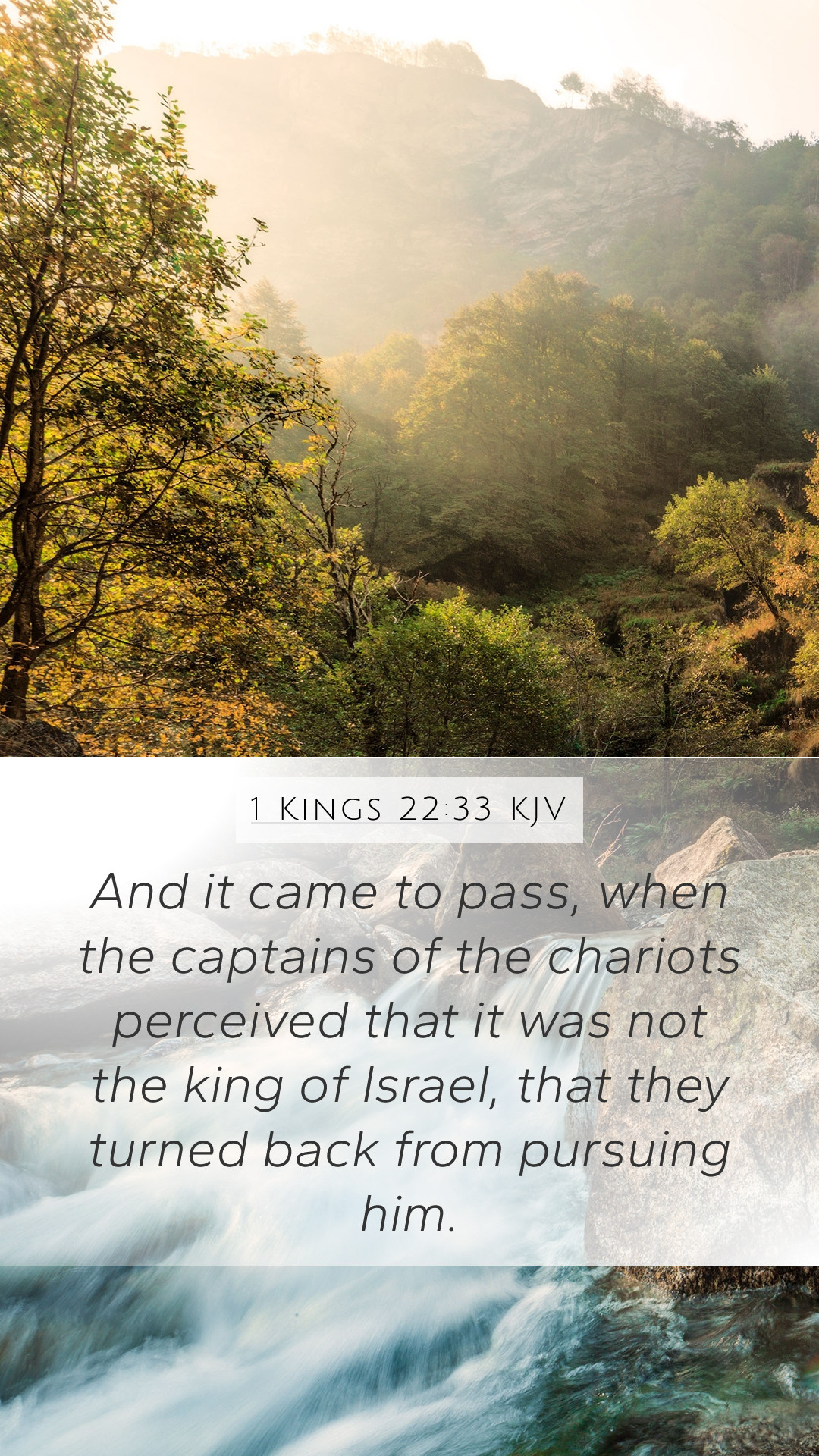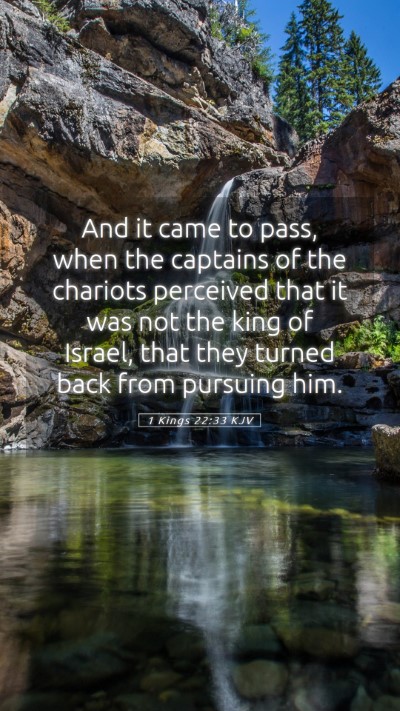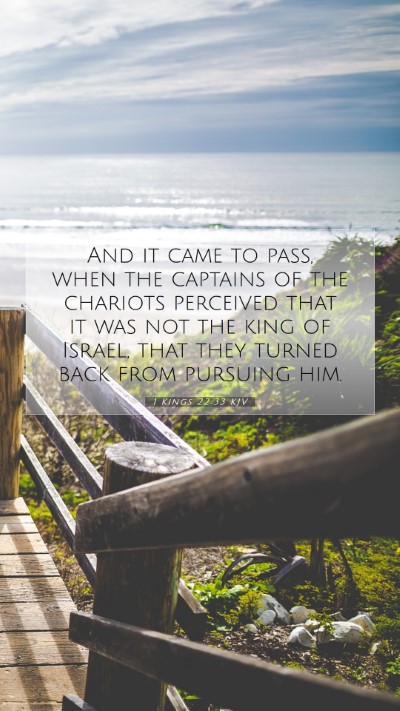Bible Verse Commentary for 1 Kings 22:33
Bible Verse: 1 Kings 22:33 - "And as Jehoshaphat was taken up into his chariot, the king of Israel said to him, 'There is no man under heaven who can carry away the great burden of this kingdom except for me. This sentiment lies heavy upon me, and I must bear it alone.'
Understanding the Context
This verse captures a pivotal moment in the narrative of King Ahab and King Jehoshaphat as they engage in a joint military campaign against Ramoth-gilead. The complexities of King Ahab’s character and his dealings provide the backdrop for understanding the nuances of this scripture. Ahab’s desperate plea illustrates his fear and lack of faith, reflecting a deep concern for the burdens of leadership and the anticipated battle.
Insights from Public Domain Commentaries
-
Matthew Henry:
Henry draws attention to Ahab’s troubled state and highlights the contrast between true faith and the reliance on human wisdom. Ahab here is depicted as a king devoid of true confidence in God, resorting to manipulations rather than seeking divine guidance. His acknowledgment of the weight of leadership may also expose his inner weakness and uncertainty.
-
Albert Barnes:
Barnes emphasizes the significance of alliances in this passage. Jehoshaphat, a man of faith, is seen mingling with Ahab, whose actions reveal the consequences of straying from righteousness. Barnes notes the irony in Ahab's attitude, as he places the burden solely upon himself while lacking genuine accountability to God or to his allies. This highlights the theme of division between righteous leadership and corrupt authority.
-
Adam Clarke:
Clarke provides an analysis of the social and political implications of their alliance. He posits that Ahab’s statement is indicative of a king wrestling with the fear of impending defeat, showcasing the psychological toll that leadership can inflict. Clarke also suggests that Ahab's isolation in dealing with his burdens showcases how kings often isolate themselves from true counsel, leading to detrimental decisions.
Meaning and Application of 1 Kings 22:33
This verse serves as a reminder of the pressures that accompany leadership and the necessity of seeking God’s guidance in difficult times. Ahab’s declaration of bearing the burden alone is a poignant reflection of the isolation that can come from pride and a lack of reliance on divine assistance.
Key Themes
- The Burden of Leadership: The emotional weight carried by leaders is often profound, making it essential for them to seek wise counsel and divine guidance.
- Faith vs. Fear: Ahab’s struggle exemplifies the conflict between a faith-driven approach to challenges and one steeped in fear and uncertainty.
- Importance of Alliances: The relationships between leaders can significantly influence the course of events, illustrating the need for careful choice of allies and advisors.
Cross References
- 2 Chronicles 18:28-32 - Parallel account detailing the alliance and battle with Ramoth-gilead.
- Proverbs 16:18 - "Pride goes before destruction, and a haughty spirit before a fall," tying in the themes of humility and leadership.
- James 1:5 - Encouragement to seek wisdom from God, contrasting Ahab’s misguided reliance on human strategies.
Conclusion
In conclusion, 1 Kings 22:33 emphasizes the inherent struggles within leadership roles, encourages reliance on God for guidance, and serves as a critical reflection on the nature of alliances in facing significant challenges. Understanding such passages through biblical exegesis provides deep insights into how these ancient texts still hold relevance in contemporary discussions on leadership and faith.


